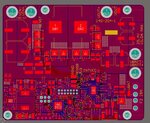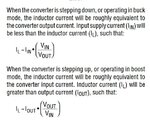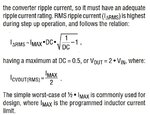ben5243
Member level 3

Hi,
I have built an LTC4020 basically identical to the DC2134A evaluation board which should be capable of 8A output operating as a CC/CV charger.
My input is 24V and output is 29.2Vfloat for Lithium Ion battery (7S)
When I connect the charger output to a dummy load (large FET with CPU heatshink and adjustable current control), the charger will output 7+ amps and regulate voltage at 29.2V (limited by my benchtop power supply) with measured efficiency of around 93%. The inductor on my PCB gets slightly warm, but not hot.
When I connect the charger to a very large Li-Ion battery at 27V, the charger only outputs about 3.0A and the output voltage is only slightly higher than 27V (so it's not maxed out due to resistance of the battery). The inductor also gets very hot (too hot to touch) when the battery is connected.
I have probed the powerpath FET gate and the LTC4020 chip is not actively limiting the current to the battery, so it is a problem with the buck/boost converter. Is there a reason a battery would cause a 4-switch synchronous buck boost converter to behave differently? I can't understand why the charger is unable to deliver more than 75W of power to the battery, but it can deliver 175W+ to a dummy load.
I have built an LTC4020 basically identical to the DC2134A evaluation board which should be capable of 8A output operating as a CC/CV charger.
My input is 24V and output is 29.2Vfloat for Lithium Ion battery (7S)
When I connect the charger output to a dummy load (large FET with CPU heatshink and adjustable current control), the charger will output 7+ amps and regulate voltage at 29.2V (limited by my benchtop power supply) with measured efficiency of around 93%. The inductor on my PCB gets slightly warm, but not hot.
When I connect the charger to a very large Li-Ion battery at 27V, the charger only outputs about 3.0A and the output voltage is only slightly higher than 27V (so it's not maxed out due to resistance of the battery). The inductor also gets very hot (too hot to touch) when the battery is connected.
I have probed the powerpath FET gate and the LTC4020 chip is not actively limiting the current to the battery, so it is a problem with the buck/boost converter. Is there a reason a battery would cause a 4-switch synchronous buck boost converter to behave differently? I can't understand why the charger is unable to deliver more than 75W of power to the battery, but it can deliver 175W+ to a dummy load.












